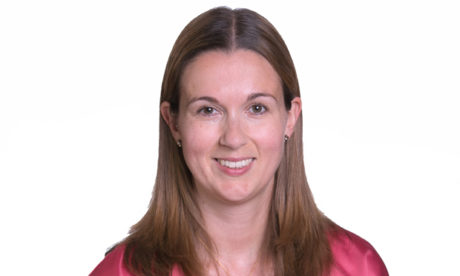Moving scenes as Town Hall passes motion to tackle rare cancers

Cllr Rebecca Rennison, cabinet member for finance & housing needs. Photograph: Hackney Council.
Hackney Council has unanimously resolved to work with local GPs and the NHS Trust to do more to tackle neuroendocrine tumours (NETs) and other rare cancers.
In moving scenes at a 31 October full council meeting, councillors were asked to raise their hands if someone in their life had received a cancer diagnosis, and keep them up if they had lost someone to the disease.
The vast majority of the chamber kept their hands in the air.
Cllr Rebecca Rennison (Lab, Kings Park), cabinet member for finance and housing needs, who made the motion, spoke of the need to raise awareness around NETs and other rare and uncommon cancers, which make up almost half of all cancer diagnoses.
Cllr Rennison said: “Cancer is something that affects all of us, but people rarely seem to talk about it.
“I had two family members diagnosed with cancer a couple of years ago, almost at the same time. This is something that touches all of us, it is so important to raise awareness and to save lives.
“We see lots of talk of the Big Four of breast, lung, bowel and prostate cancers, but all too often rare or less common cancers come as an afterthought. That can’t be the case anymore.”
Her motion to the council was seconded by Cllr Yvonne Maxwell (Lab, Hoxton West), who added: “Aretha Franklin was Queen of Soul and Steve Jobs, King of Apple Macs. Their deaths made headlines everywhere, but few people know they both died from NETs.
“Early protection has to be a public health priority, and information is key to a patient’s quality of life.
“I appeal to all councillors of all parties to play their part in getting this message out.”
Twenty-two people in Hackney will be diagnosed with NETs each year, and more than 100 residents are currently living with the uncommon cancer.
Councillors unanimously resolved to work towards a London-wide strategy to increase awareness, and to update the council’s public health strategy accordingly.
NETs occur in the cells of the neuroendocrine system, which manage basic bodily functions such as breathing and eating.
The tumours can be difficult to identify due to limitations in the coding system which registers tumour types.
Symptoms can also vary massively depending on where in the body a NET is, and what hormones it produces – a tumour in the digestive system could cause stomach and bowel trouble, whereas a NET in the lungs would register as coughing and wheezing, with some liable to release abnormal amounts of hormones into the bloodstream.
This results in 60-80 per cent of patients only receiving a diagnosis at an advanced stage.
More information on NETs can be found here.
